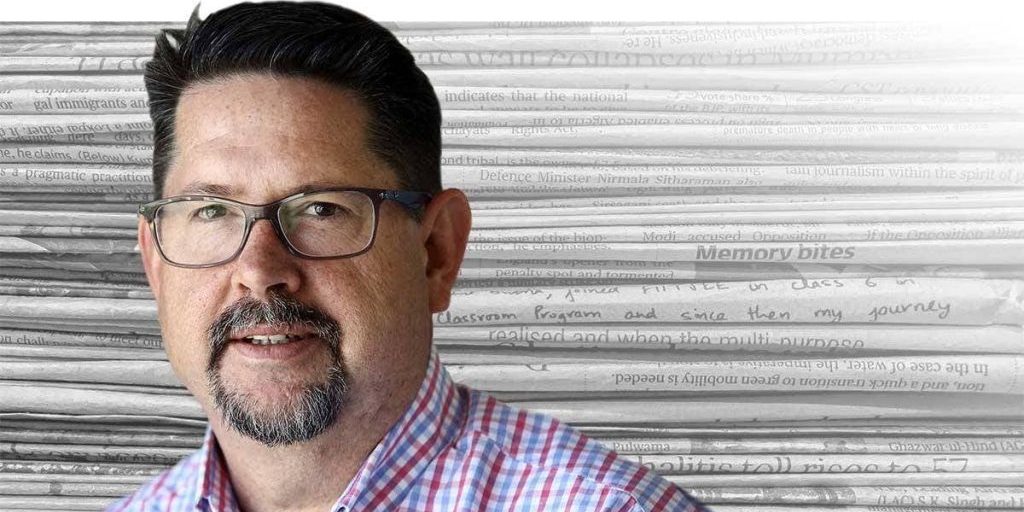State of the Newsroom report: ‘We belong to the publics we serve’
PICTURE: cottonbro studio/Pexels
It is difficult to preface the 2024 State of the Newsroom in South Africa report on a positive note – but positive we must remain under increasingly challenging conditions for journalism in South Africa.
The rallying call to have journalism recognised as a public good was heard globally this past year as newsrooms inside and beyond South Africa struggled to establish a secure revenue model. This call recognises that existing models of ‘financial sustainability’ are in themselves unsustainable.
The call is an acknowledgment that a new deal with governments around the world is crucial to the future of journalism. This new deal is part of the quest to exceptionalise journalism as a specialised field distinct from the work of other information workers who are now equal, if not bigger players in the information ecosystem.
Support for media sustainability and independence must go hand in hand though, a tough ask but a necessary one in pursuance of democracy.
The question of who a journalist is continues to bedevil the field, but content producers moving into the space of public-interest information production seem unfazed by this debate. The reality is that many new entrants to the information ecosystem are pushing back against the title of ‘journalist’ which has, for various reasons, become muddied over time
Disinformation and misinformation, sometimes from within the journalism fraternity itself, has damaged the reputation of journalists, seriously undermining the profession as a whole. This only serves to amplify already declining trust in the media, a problem which has built up over the last decade.
The lack of resonance with audiences and a stubborn unwillingness to shift how journalism is done, what stories are told, and whose voices are heard, are the nails that journalism has hammered into its own coffin.
Globally, journalism has fractured into many parts; some parts can be done by almost anyone with a smartphone and an eye for a good shot. Other parts, like food and book reviews simply don’t have a place in journalism anymore as the palate of the journalist or their subjective views of good literature can be replaced by that of the English professor or the Instagram foodie.
But there are other parts which only journalists can do – the reporting on complex issues, the reducing of dense facts, terms and processes to digestible and accessible forms, the finding of meaning and sense in everyday events
It’s time we realise that while a journalist no longer needs to taste-test food for a restaurant review, they are the only ones able to tackle issues such as food safety, worker treatment and even challenges such as overfishing which impact the restaurant industry.
The label of a journalist gives them access to spaces, data and information that no other content producer or information worker has. This access is what journalism must recognise as a public good and the fight is to protect this privilege.
At the Wits Centre for Journalism, we are grappling with how to serve the needs of a rapidly shrinking industry while rising to the challenges of journalistic work in realms such as podcasting and influencing.
We recognise the significant reach of people not identifying as journalists in the information ecosystem and we want to work with them in producing better quality and ethical content which serves the same purposes that journalism does.
Teaching the fundamentals of journalism to content producers outside the industry is a challenge I would like to throw out to my colleagues working in higher education.
Content producers are a mixed bunch and are often lazily discarded as a monotype which has no impact on the world. But the reality is that some individuals are actively filling the gaps left by journalists in their communities, and to discard this group as a bunch of couch-bound millennials with a phone and a light ring would be imprudent
Journalism schools and training institutions in South Africa, and in most parts of the world, have traditionally linked the curricula to the needs of a unitary industry, bounded by a common understanding of what journalism is and how it should be practiced.
This is no longer the case. Our journalism schools must recognise the uniqueness of the contexts in which we operate especially in terms of culture and language.
If we are to recognise journalism as a public good, we must recognise that journalism does not belong to journalists, it belongs to the publics it serves. What is medicine after all, without the patient?
Journalism produced in communities must reflect the communities in which it operates; it must speak to communities in their languages and with their images in sharp focus. The community must set the agenda, and we need to engage in new ways of listening to know what is needed.
These are not off-the-cuff ideas offered in the quest to save journalism.
Local and international research tells us this consistently; but we seem to be fixated with entrenching what is not working rather than building something new.
Looking back on the South Africa media landscape over the past year, one thing is clear: large print news businesses are on their way out, with television news set to follow. The ongoing growth of one or two newsrooms in a turbulent information ecosystem contributes only to a media which is representative of, and accountable to, a small group of people.
Media growth now exists in spaces where consumers have the means to access it and to propel it further, with those without the means having to turn to the murky waters of the Internet for critical news and information. The vast economic division of South Africa is now firmly represented in the news media industry in this country.
The reality is, one or two news organisations can be as damaging as none. Competition, plurality and diversity are crucial elements of a strong media environment which can cover more news than just a narrow slice focused primarily on political stories
Journalism as a public good is more than an abstract idea. It is a rallying cry to governments, captains of industry, funders and those with private wealth to recognise that a strong and accessible media sector is as crucial to societies as clean water, fresh food and a good education. The responsibility to keep journalism afloat is all of ours.
The global infodemic perpetuated in many spaces through the very social media platforms many of us celebrated as critical to reaching new and existing audiences, has turned on journalism, odiously benefitting from its work.
The only way to fight back is to hold these platforms to account – as we do with politicians and governments – as they, and their algorithms, fast become more pervasive and powerful in our everyday lives.
- Balliah is the Director of the Wits Centre for Journalism
- The 2024 ‘State of the Newsroom’ report uncovers facts about job losses in the news media sector, and also some unexpected findings of staff capacity. It reveals challenges journalists faced in covering national and provincial elections




